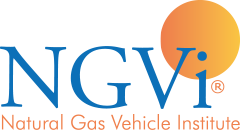ALL technicians benefit from CNG Fuel System Inspector training
While you may only have a handful of technicians who have been designated or trained as CNG Fuel System Inspectors, the reality is that all of them would benefit from this course. There are a few reasons for this, but the one I want to stress the most is safety.
By their very nature, CNG fuel systems must be held to more rigorous standards for their manufacture and installation because they store and deliver high-pressure fuel. This makes CNG vehicles some of the safest on the road, but also puts a lot of responsibility, liability, and requirements on your team to maintain them. During routine preventive maintenance, properly trained inspectors will be able to perform general visual inspections and accurately detect unsafe conditions before they worsen. The more technicians who are trained in detecting this damage and disrepair, the safer your fleet operations will be. Keep in mind that the worst-case scenario for undiagnosed CNG cylinder damage can be catastrophic.
So what do all of your technicians need in order to perform an accurate general visual inspection? That depends on two main areas—their knowledge and their skillset.
Knowledge
To be effective at visual inspections and preventive maintenance—either for your fleet or that of your customer—your technicians need to have measurable, high-level knowledge about the functions, normal states, and installation/inspection requirements for every component in your CNG fuel system. That includes (but is certainly not limited to):
o Fuel receptacles
o Secondary check valves
o Tubing and fittings
o Cylinders, mounting systems, and shields
o Cylinder valves
o PRDs
o High-pressure coalescing filters
o Solenoid Valves
o Pressure regulators
o Labels
They also need to have working knowledge of what findings from a general visual inspection must trigger a detailed visual inspection—such as damaged shields, or evidence of fire or heat damage.
Skills
Knowledge is key, but so is the ability to apply it. To do their jobs properly, your technicians must be able to recognize disrepair and damage to determine when it is or isn’t safe to restore a vehicle to service.
All of this circles back to the necessity of training. NGVi is the only ASE-accredited training provider in the alternative fuels industry, and we’ve made it our mission to help all businesses in the CNG arena operate their fleets safely, smoothly, and efficiently for the long term. If you’d like to get your technicians up to speed, we’ve got live virtual courses or e-learning available now.
